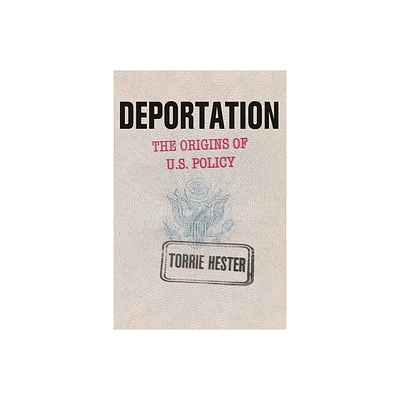Home
Disrupting Deportability: Transnational Workers Organize
Loading Inventory...
Barnes and Noble
Disrupting Deportability: Transnational Workers Organize
Current price: $130.00


Barnes and Noble
Disrupting Deportability: Transnational Workers Organize
Current price: $130.00
Loading Inventory...
Size: Hardcover
*Product Information may vary - to confirm product availability, pricing, and additional information please contact Barnes and Noble
In an original and striking study of migration management in operation,
Disrupting Deportability
highlights obstacles confronting temporary migrant workers in Canada seeking to exercise their labor rights. Leah F. Vosko explores the effects of deportability on Mexican nationals participating in Canada's Seasonal Agricultural Worker Program (SAWP).
Vosko follows the decade-long legal and political struggle of a group of Mexican SAWP migrants in British Columbia to establish and maintain meaningful collective representation. Her case study reveals how modalities of deportability—such as termination without cause, blacklisting, and attrition—destabilize legally authorized temporary migrant agricultural workers. Through this detailed exposé,
concludes that despite the formal commitments to human, social, and civil rights to which migration management ostensibly aspires, the design and administration of this "model" temporary migrant work program produces conditions of deportability, making the threat possibility of removal ever-present.
Disrupting Deportability
highlights obstacles confronting temporary migrant workers in Canada seeking to exercise their labor rights. Leah F. Vosko explores the effects of deportability on Mexican nationals participating in Canada's Seasonal Agricultural Worker Program (SAWP).
Vosko follows the decade-long legal and political struggle of a group of Mexican SAWP migrants in British Columbia to establish and maintain meaningful collective representation. Her case study reveals how modalities of deportability—such as termination without cause, blacklisting, and attrition—destabilize legally authorized temporary migrant agricultural workers. Through this detailed exposé,
concludes that despite the formal commitments to human, social, and civil rights to which migration management ostensibly aspires, the design and administration of this "model" temporary migrant work program produces conditions of deportability, making the threat possibility of removal ever-present.


















